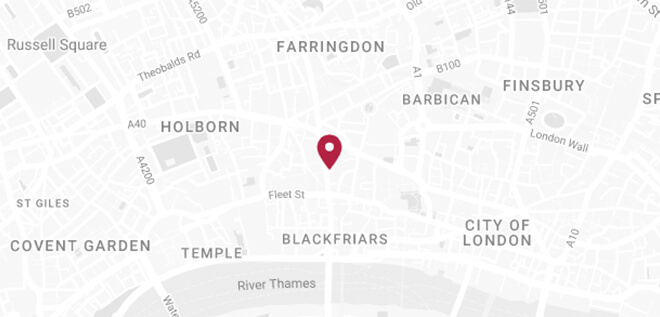News
Accelerating action: Female leaders advocate for systemic change and resilience
Attended by more than 170 women from a wide variety of organisations, Berkeley held its second annual International Women’s Day (IWD) panel and networking the event. In the spirit of the IWD theme to “accelerate action”, guests were encouraged to invite young women in their circle who were at the start of their careers. We wanted them to be inspired and encouraged by the more established women who had gone before them.
The panel featured Kirstina Combe, Chief Risk and Regulatory Officer at the London Metal Exchange; Nicky Keeley, Chief Information Security Officer at British Airways; Sarah Rapson, Executive Director - Supervision at the Financial Conduct Authority; Anna Nichols, CFO of IPG Media Brands UK and Ireland; Julie Thomas, COO of Jersey Post; and Sue Whalley, Chief People & Performance Officer at Associated British Foods. Hosted by Berkeley partner and Women@Berkeley Network sponsor Sameera Simjee, the discussion was moderated by consultant Aimee Price.
The importance of accelerating action
The panellists shared their experiences of working in often male-dominated fields, highlighting the unique challenges they faced and the strategies they employed to progress and achieve. In this article we detail the practical and implementable insights our panellists shared with our audience of female executives and early-careers women so we can all accelerate action and address the systemic barriers and biases women face, both in their personal and professional spheres.
Role models
Having visible role models and practicing authentic leadership were identified as essential for encouraging women into leadership roles. The panellists discussed the impact of seeing successful women in senior positions and how it inspired them to pursue their own career aspirations.
Anna Nichols, CFO of IPG Media Brands UK and Ireland, gave a pen portrait of an influential female leader who showed her what authentic leadership looked like in practice.
The minute she walked into the room, I was starstruck because she was what I wanted to be. You know, she was authentic. She was intense, intelligent. Asked questions without being aggressive, was a great person. I really liked her. Family orientated. That is the kind of person I want to be in my career.”
Anna Nichols, CFO of IPG Media Brands UK and Ireland
Authentic leadership
Authentic leadership involves being true to oneself, challenging the status quo, and leading with empathy and integrity. Women should feel confident in their abilities and be encouraged to present their authentic selves, fostering a culture of inclusivity and respect. Anna’s confidence has enabled her to work part time while advancing her career and being part of the C-Suite.
Sarah Rapson, Executive Director – Supervision at the Financial Conduct Authority, used the metaphor of cats and dogs to describe different leadership styles and how they can impact career progression. Here's a distillation of her insights:
Dog approach to leadership
Early in her career, Sarah adopted a "dog approach" to leadership, characterised by working hard, doing a great job, and waiting for recognition. This approach worked initially, as she was frequently tapped for promotions and new opportunities without needing to put herself forward. However, she realised that as she advanced in her career, the promotions and opportunities stopped coming automatically. The higher she climbed, the fewer pats on the back she received, and she had to find resilience in herself to deal with negative feedback.
Cat approach to leadership
Sarah then shifted to a "cat approach" to leadership. Cats walk into a room and own it; they don't seek validation and assume their place at the table without asking for permission. They are not desperate to please, yet they command attention and have executive presence. Sarah decided to stop waiting for recognition and started making her impact visible. She emphasised the importance of knowing one's worth, not letting setbacks shake you, and walking in with quiet confidence to command the room.
Balancing both approaches
Sarah concluded that true leadership involves balancing the best qualities of both cats and dogs. The credibility and confidence of a cat combined with the approachability and relationship-building skills of a dog create effective leadership. She suggested that aspiring leaders should dial up their "cat" qualities to succeed in the boardroom while maintaining the positive aspects of the "dog" approach.
This metaphor highlights the importance of self-confidence, visibility, and resilience in leadership, encouraging women to adopt a more assertive and self-assured approach to their careers.
Addressing systemic barriers
The discussion underscored the need to address systemic barriers that hinder women's career advancement. This includes creating policies and practices that support women during critical life stages, such as having children and menopause. Organisations should implement flexible working arrangements, provide adequate support, and normalise conversations around these topics to ensure women can thrive in their careers without facing undue challenges.
If [women] don't have adequate support, both at home and within their workplace, their inclination to not just come back [after having children or] to remain once they are back is really low.”
Kirstina Combe, Chief Risk and Regulatory Officer at the London Metal Exchange
Addressing these barriers is crucial for retaining talented women and promoting gender parity.
Building diverse and inclusive teams
The panellists stressed the importance of building diverse and inclusive teams to drive innovation and success. Gender diversity should be complemented by diversity in ethnicity, background, and experiences. Organisations should actively work towards creating environments where all voices are heard and valued. This involves conscious efforts to ensure diverse representation in leadership roles, fostering a culture of collaboration, and challenging biases that may exist within the workplace.
Nicky Keeley, Chief Information Security Officer at British Airways, talked about several strategies she used to achieve diversity in her team:
The importance of consistently seeing the potential in people for who they are, welcoming the diversity they bring into roles and organisations. This involves day-to-day interactions that champion inclusivity and recognise individual strengths.
Nicky observed that female candidates often hesitate to apply for roles unless they meet nearly all the criteria, whereas male candidates are more likely to apply even if they meet fewer criteria. She addressed this by encouraging women to apply for roles and by recognising their potential beyond the listed qualifications.
Building teams that are diverse not only in gender but also in other aspects. Nicky highlighted the importance of having different viewpoints within the team,
Nicky worked to ensure that the environment within her team was welcoming and inclusive. This involved making conscious decisions to be inclusive in everyday practices and interactions, such as pre-screening roles to avoid accidental biases.
Nicky stressed the impact of interactions on a day-to-day basis, such as standing up for individuals, championing their contributions, and ensuring they feel included and valued. These interactions can significantly boost confidence and encourage diverse talent to thrive
By implementing these strategies, Nicky was able to build a notably diverse team in the cybersecurity field.
I've had the privilege of building this team, which is about 40% female...which in cyber is pretty rare, to be honest. To be at about 40% female, but actually a really diverse team regardless of gender.”
Nicky Keeley, Chief information security officer at british airways
Encouraging young women
Encouraging young women to pursue their career aspirations and providing them with the necessary support and opportunities were highlighted as key strategies.
Julie Thomas, COO of Jersey Post talked about her experience of initiatives like the former UK government’s now defunct Kickstart Project, which offered placements and mentoring for young people. She recruited 130 young people into a variety of roles within the NHS. These were six-month placements to help them secure care assistant or admin roles.
We put the mechanism behind them so that on their first day in the job and in their first ever experience of working, they had a mentor, they had tools. We put a training programme together. Everybody has a superpower. And all we need to do as leaders is spot the people who they may be, you know, kind of the wallflowers. They may be just being ultra helpful and making the tea in the boardroom. But spot the people and help them. Help them to navigate their way through. Help them. Help give them confidence. ”
Julie thomas, Group operating director At jersey post
Leaders should be brave in giving opportunities to young women, helping them build confidence and resilience, and guiding them through their career journeys.
Allyship and male engagement
The panellists recognised the importance of allyship and engaging men in the conversation about gender equality. They talked about explicitly asking for support and allyship from their male colleagues. Men should be encouraged to support and advocate for women's advancement, creating a collaborative effort towards achieving parity. This involves noticing differences in the first place, challenging stereotypes, promoting inclusive practices, and ensuring that men understand the value of gender diversity in driving organisational success.
However, allyship isn’t just relegated to the workplace – it is important in all areas of life. Sue Whalley highlighted the significance of having difficult conversations at home and the role of family support in her career progression. She shared how her partner's encouragement helped her take on challenging roles and navigate a two-career household.
My accelerator, without any question has been the ability to have difficult conversations at home about how to manage progress. And, you know, there's so much we'll tale about this evening that organisations need to do to support women. In fact, all colleagues. But you know what? In my experience, the narrative starts at home and empowerment starts at home.”
Sue Whalley, Chief People & Performance officer at abf
Moving forward
The panellists agreed that while progress has been made, there is still much work to be done to achieve gender equality. They called for continued efforts to support women at all stages of their careers and to create inclusive environments where everyone can thrive.
As the event concluded, attendees were encouraged to continue the conversation and take action to accelerate progress for women in their own organisations and communities.
The Women@Berkeley Network
Berkley partner, Sameera Simjee, said, “We are thrilled to have sponsored such an inspiring and empowering event in celebration of International Women's Day. The overwhelming participation and enthusiasm from attendees truly reflect the importance of recognising and supporting women's achievements across all sectors.
“This event not only provided a platform for incredible women to share their stories and insights but also fostered a sense of community and solidarity. We are proud to be part of an initiative that champions gender equality and empowers women to reach their full potential.”
“Some organisations have well-developed women's networks while others are considering establishing their own for the first time. We would love to hear about what is happening in other businesses. Perhaps we could bring our networks together to share best practice and ideas. We have materials to support others in creating their own groups or women's mentoring programmes.”
Contact us if this could be of help to you and you would like to know more.





